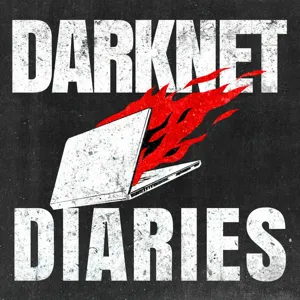Podcast Summary
Data breaches have severe consequences: Data breaches can expose personal information leading to public humiliation, sextortion scams, and even suicides. Be vigilant and take data security seriously to prevent harm.
Data breaches can have devastating consequences beyond just the loss of personal information. The 2015 Ashley Madison data breach exposed the real names, addresses, phone numbers, and credit card information of 32 million users, leading to public humiliation campaigns, sextortion scams, and even suicides. Hackers continue to use this information, along with passwords and other details, to manipulate and extort individuals. The emails they send often include additional lies to add credibility to their threats. This incident serves as a reminder that even a small piece of leaked information can be used to cause significant harm. It's essential to take data security seriously and be vigilant against potential threats.
User tables are common targets in data breaches: Protect your online security by using strong, unique passwords and regularly checking if your email address has been involved in any data breaches
The security of our personal information is under constant threat due to data breaches and hacking incidents. These breaches result in large databases of user information being leaked online, including usernames, passwords, and contact details. Hackers then use this data to make false claims and extort money from individuals. The user table, which is a database of user information, is a common target in these breaches. This table often contains sensitive information such as passwords, which can be used to gain access to other accounts. It's important to note that old passwords, which may no longer be in use, can still be a risk if they are leaked. Password crackers can be used to decipher these passwords over time, and once deciphered, they can be used to gain unauthorized access to accounts. It's crucial to use strong, unique passwords and to avoid using the same password across multiple accounts. Additionally, regularly checking websites like "haveibeenpwned.com" to see if your email address has been involved in any data breaches can help keep you informed and proactive about protecting your online security.
The Ashley Madison breach: From encrypted passwords to scams: The Ashley Madison breach highlights the need to secure data at all levels, from the structure to individual passwords, to prevent unauthorized access and potential scams.
Data breaches, like the one that occurred with Ashley Madison, can result from both a failure to secure the data itself and the structure of the data being compromised. The passwords in the Ashley Madison breach were encrypted, but the table itself should have remained confidential. Hackers are often highly skilled individuals who obtain this sensitive information, while scammers then use this data to carry out attacks, such as Bitcoin scams. In the case of Ashley Madison, the scammers likely obtained the data when it was publicly available and used encrypted passwords to attempt to validate threats. This process, known as password cracking, involves using powerful tools and large word lists to decrypt passwords. The ease of this process is a concern, as many people use weak passwords. The Ashley Madison breach serves as a reminder of the importance of securing data at all levels, from the structure of the data to the encryption of individual passwords.
Data breaches can lead to extortion emails: Data breaches can result in threatening emails demanding Bitcoin, use strong passwords and delete suspicious emails.
The aftermath of data breaches like Ashley Madison's can lead to various malicious activities. The original hackers may sell the data to scammers who then send threatening emails to extort Bitcoin from victims. The decryption process, which turns encrypted passwords into readable ones, can be carried out by either the hackers or the scammers. This process involves encrypting common words and comparing them against the encrypted passwords until a match is found. For individuals receiving such emails, hitting the delete key is the best course of action. However, it's essential to consider if other accounts might have used the same compromised password and change them accordingly. If the email instills fear due to the use of a current password, then further investigation and action may be necessary. Businesses and organizations face numerous cybersecurity challenges as technology evolves, threats emerge, and regulations increase. The Center for Internet Security (CIS) offers resources to help organizations maintain security best practices and collaborate with others to create a safer digital world. Podcasters can reach a large and engaged audience by partnering with Lipson Ads for podcast advertising. They can choose from top podcasts with host endorsements or run reproduced ads across thousands of shows to reach their target demographic.
Exploiting Old Data Breaches for Scams: Cybercriminals utilize old data breaches to scam people with threats and crises, targeting a large number of victims due to their effectiveness.
Cybercriminals continue to exploit old data breaches and use fear tactics to scam people. Despite being several years old, the information from past data leaks remains valuable to scammers. They target individuals with threats and crises, tricking some into giving up sensitive information. These scams are quantity-driven, with criminals seeking as many victims as possible. The reason for their persistence is simple: these tactics work. As for the podcast, the team is considering focusing less on weekly news updates and more on structured storytelling in their monthly episodes, with occasional updates as needed. They value listener feedback and encourage engagement on social media or Patreon.






